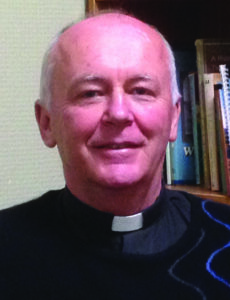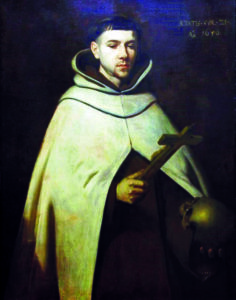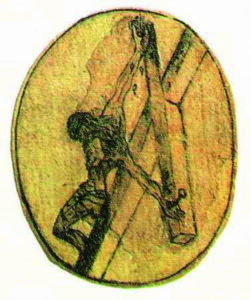St John of the Cross
Part 1 of 5
St John of the Cross was born in 1542 in Spain and died there in 1591. He was canonised in 1726 and proclaimed a Doctor of the Church in 1926.
Today he is a largely unknown religious figure. People begin reading the Dark Night and soon give up. He seems to be too austere and only for those called to higher forms of holiness. This is a myth! He is a deep source of spiritual wisdom, truly a healing doctor of the soul and especially for those of us in these days of testing and trial and joy and blessing. He is a man of poetry, of desire for goodness and for beauty. His confreres found him kind and gentle and joyful.
So, once we discover his profound teaching, he touches our desire for holiness and the strict detachment from all sin required to receive this gift. He helps us to be free if we wish it. Enslavement to possessions, to power and to pleasure are the very fabric of our culture, producing a bitter fruit. The antidote is found in the bracing teaching of St John.
He had a very difficult childhood, the third son of a very poor widow, but he was bright. At the age of seventeen he obtained a scholarship to a Jesuit school [1559-63] and also worked in a hospital with gentleness and patience.
He then joined the Carmelites of the Ancient Observance and studied at Salamanca, then at its greatest period of scholarly prestige. He was an excellent student of the Scriptures, and immersed himself in them, learning from outstanding professors, and eventually using his knowledge of the Bible in his writings.
Ordained to the priesthood in 1567, John was restless and wished for a stricter life, so he planned to leave the Carmelites and join the Carthusians. However, his life changed when he met St Teresa of Jesus in 1567. She convinced him to help her establish the Discalced Carmelite friars. She said, Though he is small in stature, I believe that he is great in God’s eyes.
He entered the Reform branch of the Carmelites in November 1568 and founded the first house at Duruelo. In 1570 he was Rector of the house of studies in Alcala, where he underwent a severe trial of dryness, scruples and desolation, feeling God had abandoned him. When deliverance came he was rewarded with much divine light.
Such pruning by God readied him for his next appointment as confessor at the Convent of the Incarnation at Avila, in 1572, where St Teresa was prioress. It is said that a punctilious Carmelite, Ana de Jesus, was shocked when St John referred to St Teresa as my daughter but she was indeed directed by him and learned so much from his wisdom. She referred to him as mi padre, my father. We know little about their spiritual friendship other than that it was a great gift to both of them, and eventually, to the Church.
This is because it was at Avila that he discovered his gift -- spiritual direction. He directed the nuns as well as many lay people. He was the best, and his whole life and writings were, and still are, the answer to the quest to help free earnest people from obstacles to holiness and show them the authentic road to Christ. He is still a kind and honest director today. He is made for the long road to holiness. There is nothing superficial in his writings.
Sadly, there were disputes between the Carmelites of the Ancient Observance and the Reform. So, in December 1577, John was kidnapped and imprisoned in Toledo for nine months, during which time he was frequently flogged, given little food and confined to nothing more than a cupboard.
But this proved to be a time of great grace. He wrote several poems, including the Spiritual Canticle. These poems are considered some of the greatest lyric stanzas in Spanish literature. Faced with possible death from his ill treatment, he escaped from his prison, with the notebook containing various poems, at about the time of the feast of the Assumption in 1578.
John continued his work of spiritual direction as well as carrying out duties of leadership in the Reform. He was busy, founding seven houses, working with the nuns and the friars, the clergy and lay people. He designed and built monasteries. He is said to have travelled 25,000 kilometres visiting the friars and the nuns.
During this time, especially at Granada in 1582, he wrote his commentaries at the request of the nuns, to accompany his poems. He wrote four major works -- Spiritual Canticle, Living Flame of Love, Dark Night and Ascent of Mount Carmel. He wrote these during the last fourteen years of his life, by which time he had had vast experience as a director and could clearly see the true way to spiritual liberation and union with God.
It was during this time that disputes arose within the Reform and after being in leadership, he was deprived of such roles in 1591. John was threatened with expulsion from the Reform and a smear campaign took place. This never lessened his trust in God. He saw the hand of God there. He wrote, “think nothing else but that God ordains all and where there is no love, put love and you will draw out love.” He became ill with fevers and gangrenous sores on his feet. He was given the option to which house he could go to and opted, in September 1591, to go to Ubeda, where the Prior was an enemy and cruel to the frail John. He wished to die like the Lord.
However, they were reconciled by the witness of John’s holiness and Christ-like virtues. As he lay dying, he asked for some verses from the Song of Songs.
John died, after suffering excruciating agony, on the evening of 14 December 1591, going as he said, to “sing Matins in heaven.” He died with the favours he had asked from Our Lord: not to die as a superior, to die in a place where he was unknown, and to die after having suffered much. Eventually, he was buried at Segovia where he is today.
He once wrote, The Lord has always revealed to us the treasures of his wisdom and his spirit, but now that the face of evil more and more bares itself, so does the Lord bare his treasures the more.



 Entries(RSS)
Entries(RSS)